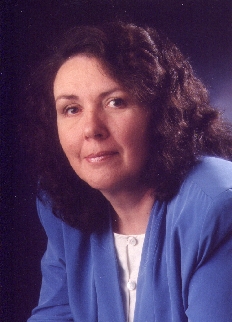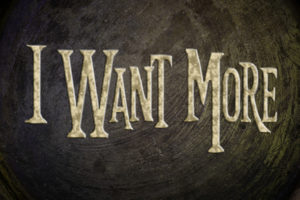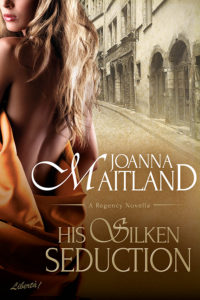 This week’s guest, multi-published Joanna Maitland, knows all about loving her characters, but to ring the changes from the ‘Love me, love my character’ series, I’ve asked her to give as some of her valuable expertise. What am I talking about? Read on…
This week’s guest, multi-published Joanna Maitland, knows all about loving her characters, but to ring the changes from the ‘Love me, love my character’ series, I’ve asked her to give as some of her valuable expertise. What am I talking about? Read on…
Joanna Maitland’s first historical romance went through the Romantic Novelists’ Association’s New Writers’ Scheme (NWS) and was then published by Harlequin Mills & Boon. Twelve more Mills & Boon historicals followed. At the same time, Joanna became a reader for the NWS and got a real kick out of helping other aspiring writers along the difficult road to publication. Some of her NWS ‘clients’ have gone on to great success.
Joanna now publishes her books independently and provides freelance editing services to fellow writers, published or unpublished. She is a Vice-President of the Romantic Novelists’ Association (RNA) and a partner in Libertà Books, which runs the libertabooks.com website and offers writing courses and workshops for all levels of experience.
Her most recent Kindle ebook – His Silken Seduction, a Regency novella – is available from Amazon.
Welcome Joanna! Tell us a little about your writing journey
I spent nine years being rejected by Mills & Boon. Encouraging rejections – keep trying, they said – but still no.
I visualised editors as gatekeepers, dividing manuscripts into reject and accept piles. I thought editors checked spelling and commas in manuscripts they’d accepted. How ignorant I was! Copy editors do that, plus facts, continuity, and much more.
 When M&B finally accepted me – partly thanks to the RNA’s New Writers’ Scheme – I discovered what editors do.
When M&B finally accepted me – partly thanks to the RNA’s New Writers’ Scheme – I discovered what editors do.
As my partner at Libertà Books, Sophie Weston, puts it, “the editor is the author’s first, best reader”.
So is what’s the difference between editing for traditionally published and self-published?
If you’re published by a traditional house, professional editing comes with the deal.
A self-published author pays her own freelance editor. Or does without.
I’m self-published now. I also freelance edit for other authors, like Alison Morton, my host here. (And very pleased I am with it – Joanna has done the structural editing for several of the Roma Nova books. My goodness, she has a sharp eye, and plenty of bracing, but 24 carat gold advice!)
So, do I act as editor for my own manuscripts?
No.
I pay a trusted freelance editor as my “first, best reader”, because I can’t be objective enough to edit my own MS. Because that’s not how editing works.
So how does editing work?
Let’s assume my client, Arabella Author, sends me her completed manuscript. It’s as good as she can make it. I don’t ask for a synopsis. I want to approach the story from cold, like a paying reader, going on a journey into the unknown with Arabella’s characters.
Sometimes, I’m so carried away by Arabella’s story that I marvel. And I tell her so. Sometimes, a scene has less impact than it might have. Or maybe something jars me out of the story altogether – haven’t we all yelled at the TV when loose ends are left hanging?
Then, I may make comments like:
• I wasn’t convinced by this, because… [plot point that didn’t work for me, or motivations I found unclear, or loose ends not tied up, etc]
• As a reader, I was longing for more here about this character’s feelings / this relationship / this plot set-up / this location …
• I was confused here because…
• You lost me here, as a reader, when…
• As a reader, I felt that the story missed telling me about…
Arabella is too close to her MS to see these issues. Authors usually are. We know the background, characters, motivations – everything about everything, past and future. We can’t put ourselves in the position of a new reader, starting from zero.
That’s what the professional editor does. That’s why I don’t edit my own books.
What are the key editing principles?
As Arabella’s editor, I must avoid telling her what to write. It’s her book, not mine. As an engaged reader, I’ve identified an issue. Provided Arabella trusts me, I may tentatively suggest an outline approach (preferably with alternatives, so she doesn’t feel pushed in one particular direction).
My editor’s role is to fire Arabella’s imagination so she fixes the issue herself – provided she agrees it needs fixing, of course! – either by building on my prompts or by finding a whole new slant of her own. Often, Arabella finds a much better solution than anything I might have hinted at. And I cheer.
Oh, and I may also correct punctuation. My inner copy editor is a pest!
(Hahaha! No, really)
Thank you so much for stopping by, Joanna, and my warmest wishes for your editing services business. Your clients will be getting one of the best!
Connect with Joanna Website Blog Amazon author pages
Twitter @joannamaitland @libertabooks Facebook
What’s Joanna’s latest book about?
Wounded. Abandoned. In the enemy’s bed.
He’s Wellington’s spy, trying to survive in war-torn France.
He has a choice – duty, or desire.
She’s his beautiful silk weaver. Day after day, her hands caress his battered flesh. Her touch is driving him wild.
But she’s the enemy. She must not discover who he is.
Surely she will betray him?
Will he dare to trust her with his life, his mission, and his heart?
Kindle ebook available from Amazon
Alison Morton is the author of Roma Nova thrillers, INCEPTIO, PERFIDITAS, SUCCESSIO and AURELIA. The fifth in the series, INSURRECTIO, was published in April 2016.
Find out more about Roma Nova, its origins, stories and heroines… Get INCEPTIO, the series starter, for FREE when you sign up to Alison’s free monthly email newsletter




















Am blushing here, after reading what Alison said about the editing I’ve done for her. It’s a pleasure to work with her and I LOVE the Roma Nova books. Can’t wait to see number VI.
On its way to you soon, Joanna.
Editing is such an essential stage of a book’s journey. However much work you think you’ve done on it as an author, there’s always more.
Loved this post! I find that authors really benefit from the perspective you described. I’m glad using “as a reader” in your notes has been beneficial as I do that for my clients as well. That objective feedback is valued as much, if not more so, than correcting punctuation and other issues. Thanks for sharing your perspective! 🙂
Feedback is invaluable. My own manuscripts go through a three-stage process before publication. After I’ve gone through it with a self-edit, It goes to my critique partner who has the instincts of a velociraptor, then after revisions, to Joanna for a structural edit, then (inevitable!) revisions, then to the copy editor.
All these stages are different, but make up a complete process. Of course, there’s the proof read later…
Thanks for sharing, Megan. I’ve learnt over the years that “as a reader” is definitely the first, best perspective to use. Rather than — as some publishers’ editors do — the “fitting into the publisher’s preconceived straitjacket” perspective which can kill an author’s creativity by forcing her to keep producing the “same old, same old”. Creativity is SO important.
I heartily agree with this. I think most writers realise that publishers have to make money and editors pretty much know what sells, but in the end I have to write from the heart. I have to be completely involved in my characters and my story. The creativity is the exciting bit!
Thanks for dropping by, Fenella. Not sure I agree that editors “pretty much know what sells” though. I think they know what HAS sold and so they tend to assume that more of the same is the answer. Present them with something new — I never forget the late Carole Blake telling me how many editors had rejected Lady Of Hay — tends to make them run for cover, possibly screaming. So there’s a lot to be said for writing from the heart, as you say.
So agree with your take on editing, Joanna. It’s what I do too. One is a reader first and foremost and being picky about what strikes and doesn’t helps the author give their later readers a really good read.
Thanks, Liz. I know you give your editees (is that a word? like tutees?) really valuable advice. We can all do seminars on the craft of writing but, in the end, it’s grabbing a reader by the imagination that makes the difference.
Really enjoyed reading this, thanks for sharing. Lots of valuable advice here for self-publishing authors and for any writer working at knocking an mss into shape before submitting.
Well, so much of it is really common sense, isn’t it, Julie? But an editor needs to be in much the same position as a new reader and — sadly — it’s just not possible for an author to act as a new reader for her own work.
Solution? We should all employ each other as editors??
I enjoyed your advice and take on an editor’s perspective. Very refreshing.
Thanks for taking the time to comment, Sherry. Glad you enjoyed the blog. Must admit that I enjoyed writing it, too.
Forgot to mention how I enjoyed the blogpost!
Thanks again!